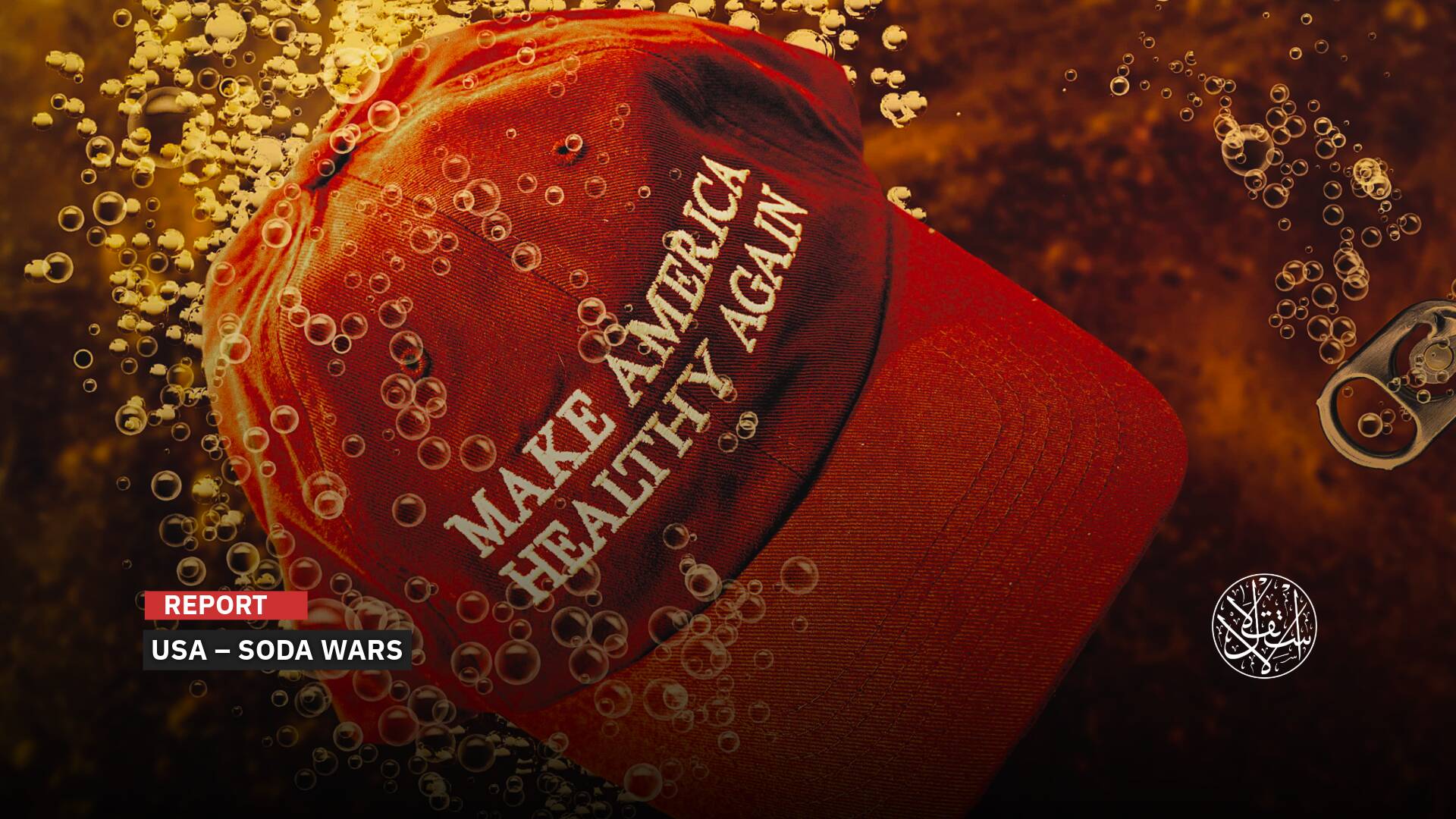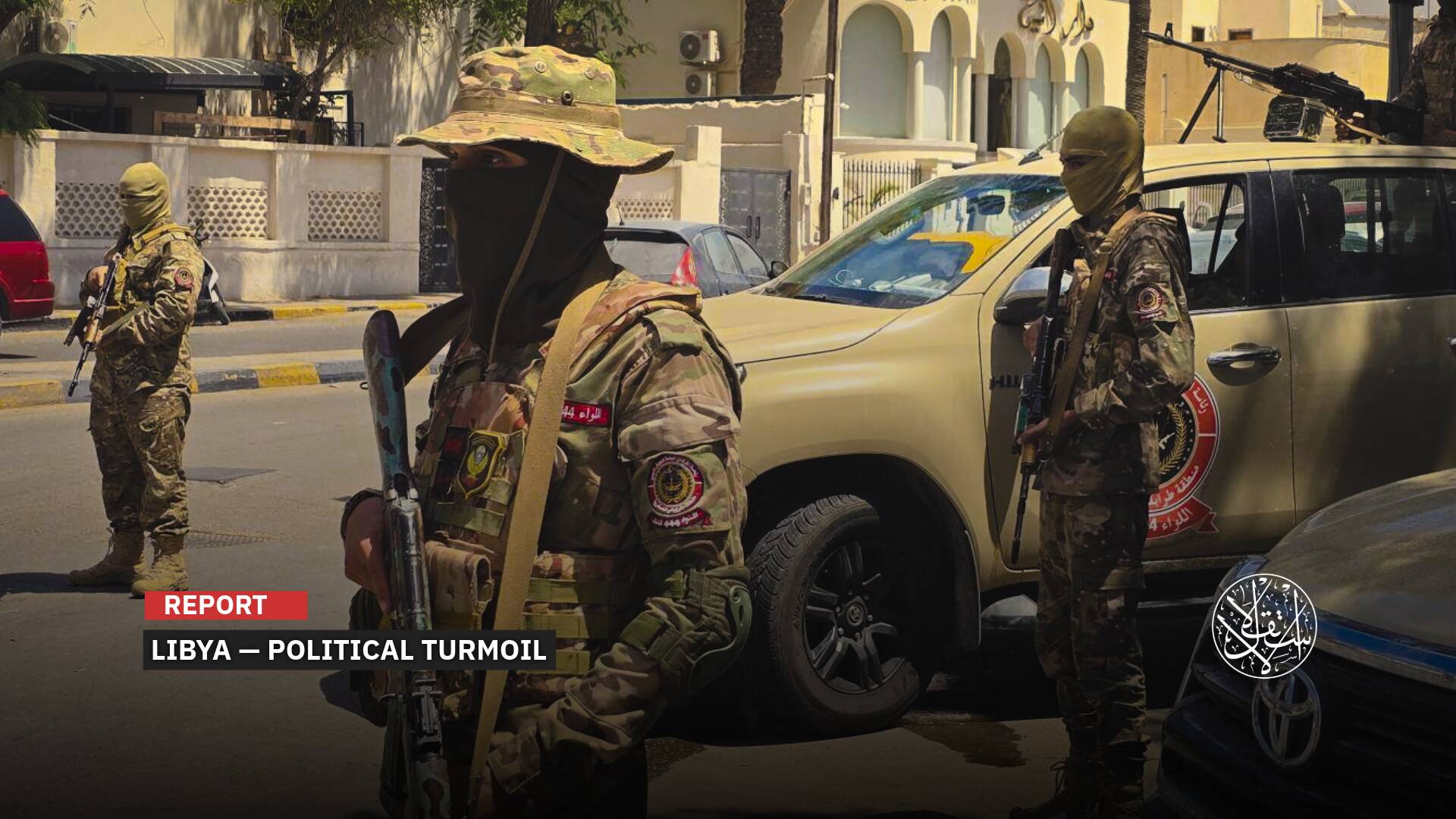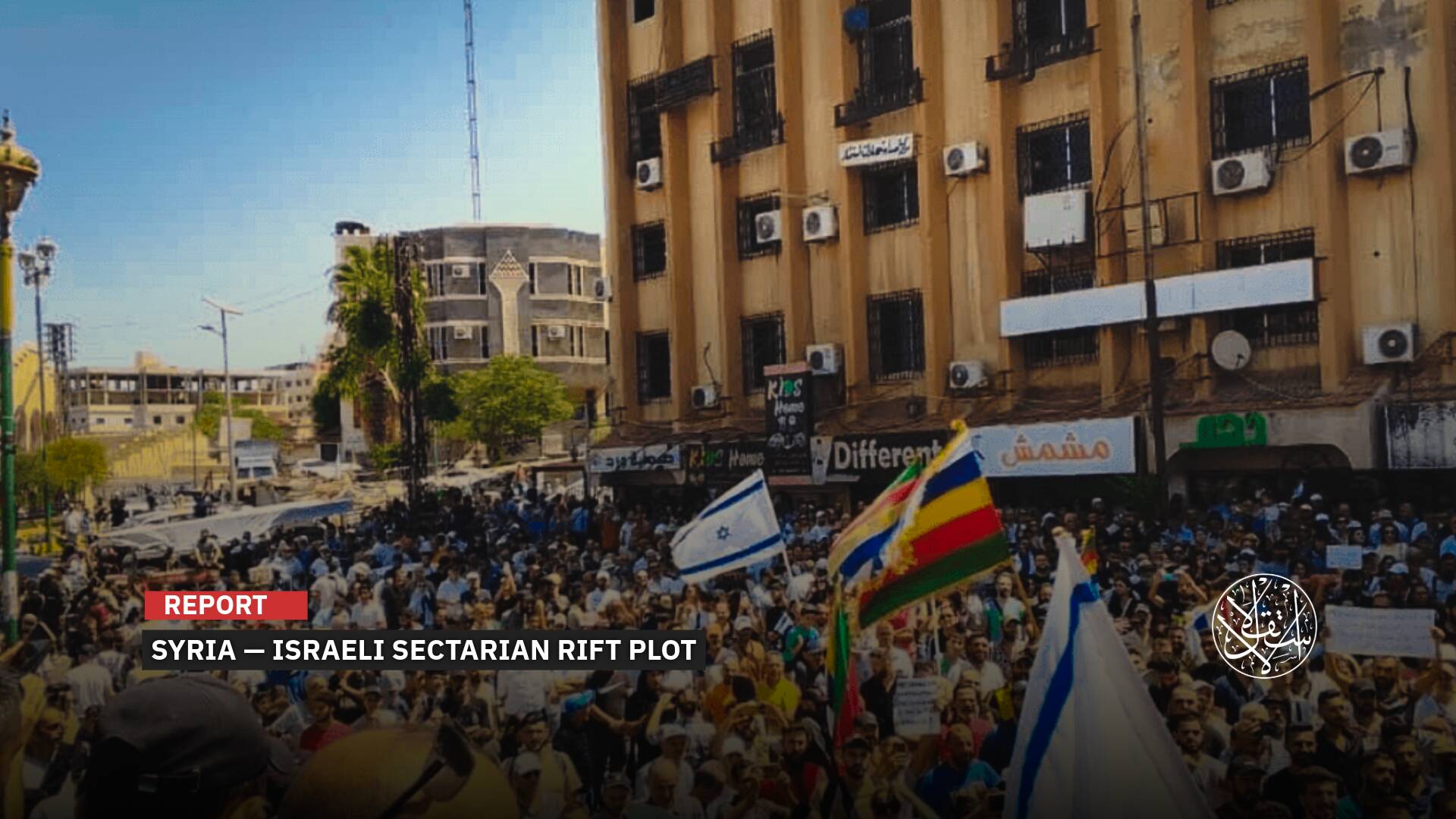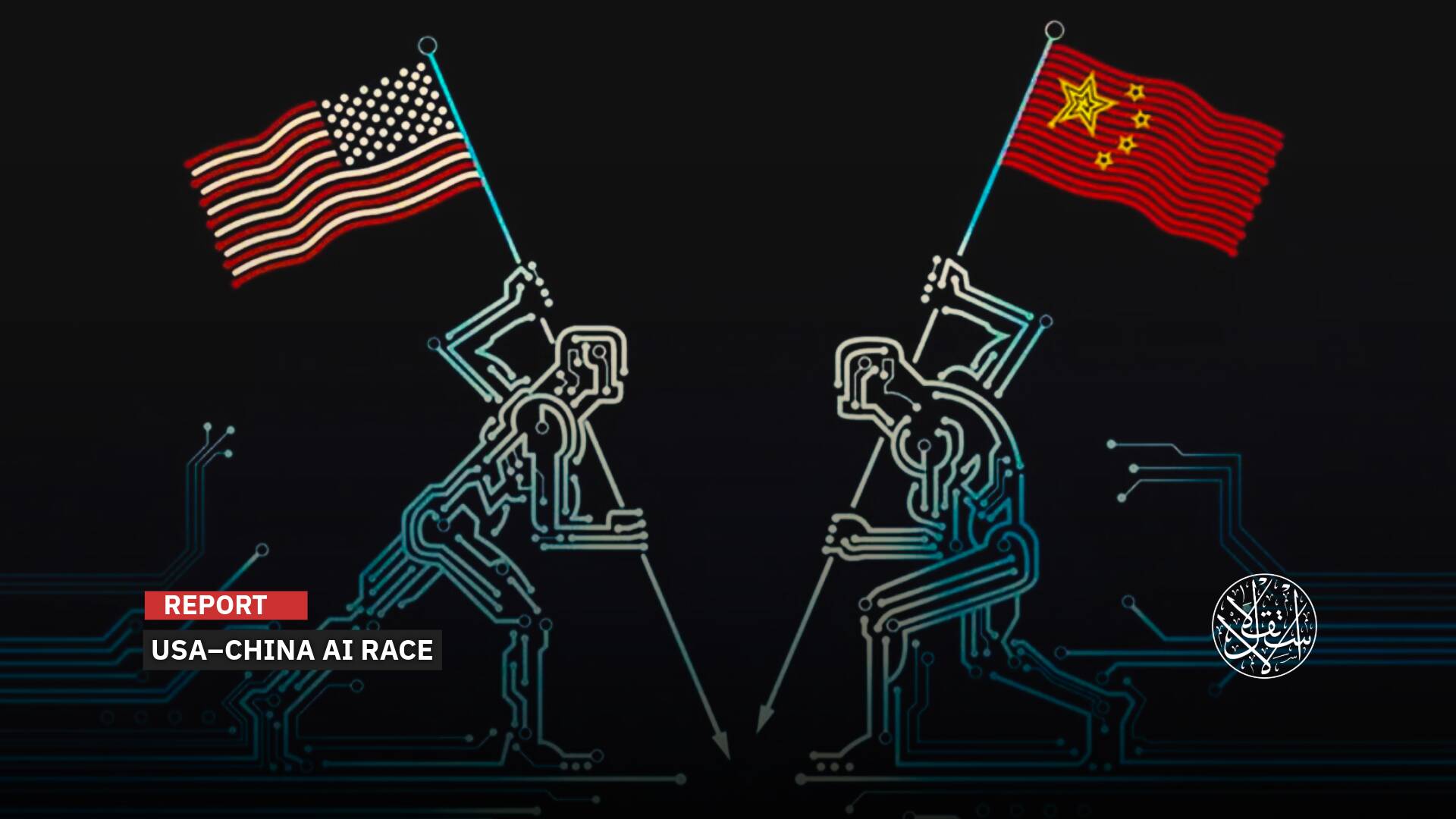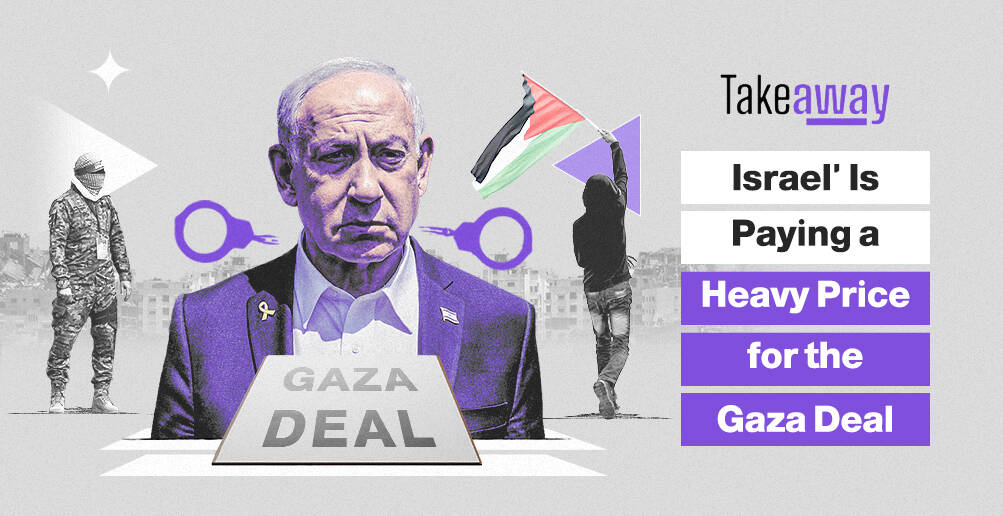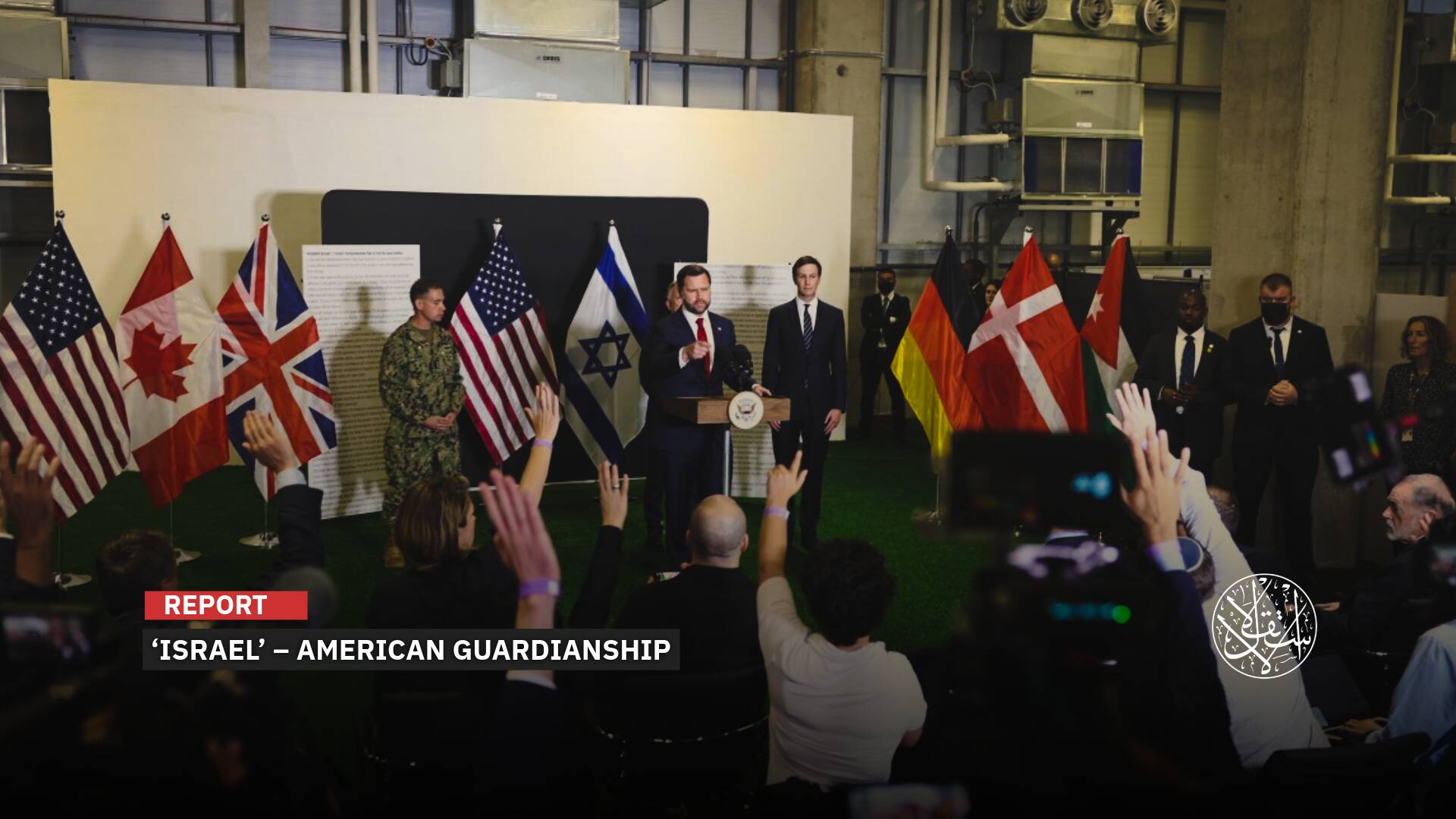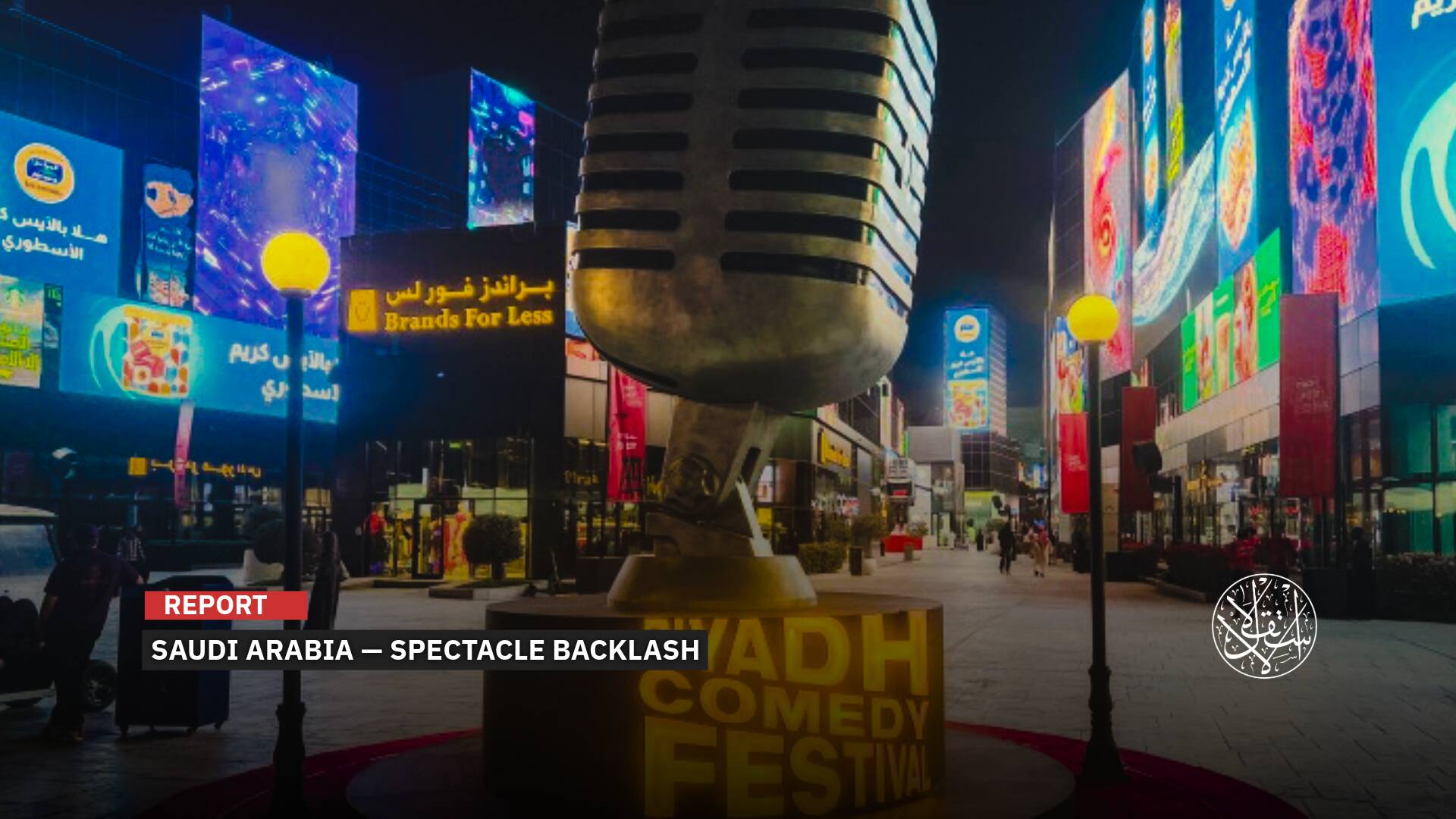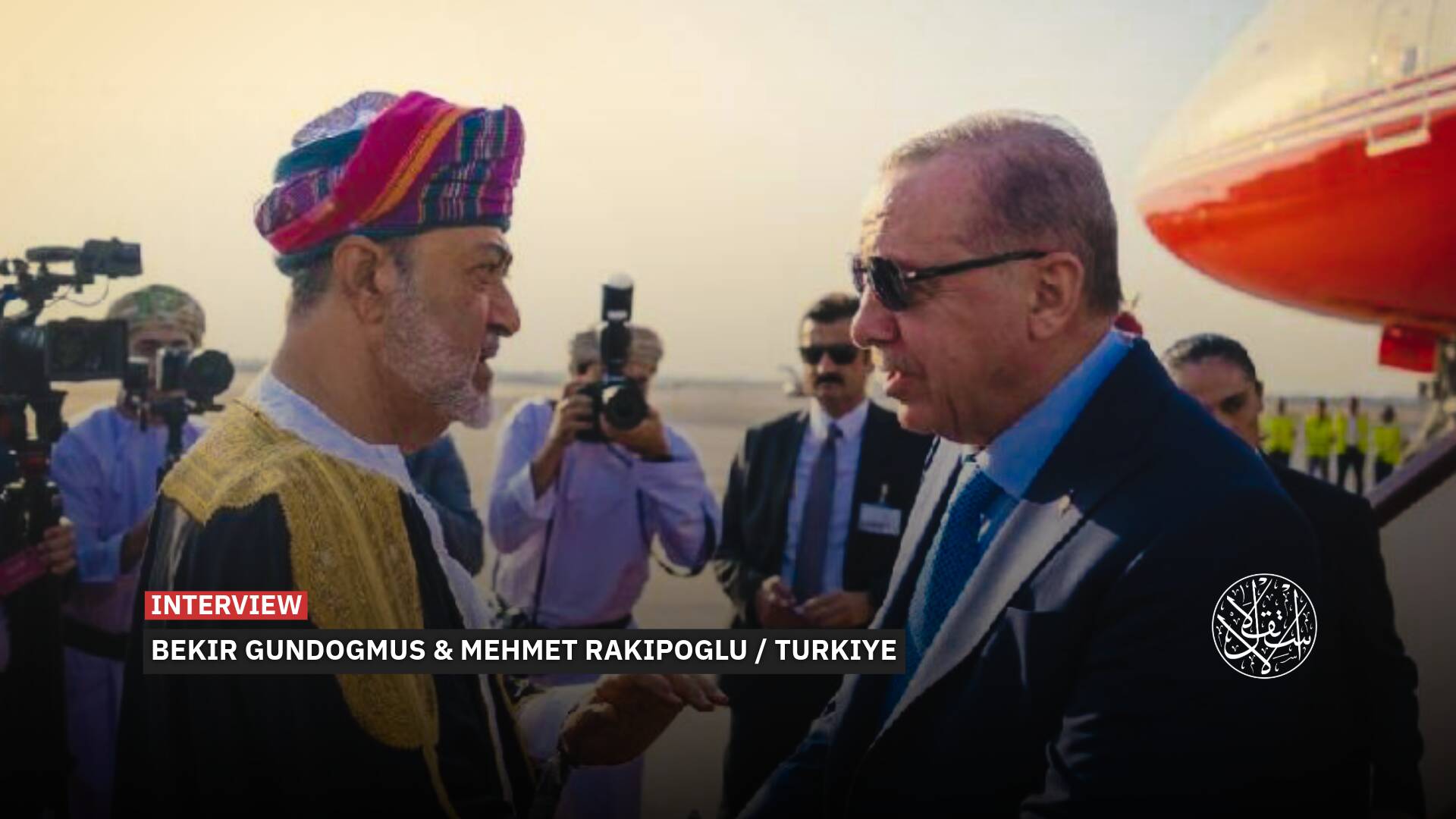Mahmoud Khalil’s Arrest: A Crackdown on Free Speech and Political Dissent

If Trump is able to deport student Mahmoud Khalil, freedom of speech will have died.
In a new escalation against the student movement supporting Gaza, US President Donald Trump has begun carrying out his threats against students protesting "Israel's" atrocities, using executive orders and repressive measures designed to silence voices in support of Palestine.
Following the signing of an executive order on January 29, 2025, granting the power to deport students supporting Palestine under the guise of "combating anti-Semitism," security forces began arresting some of them, issuing threats of deportation.
Meanwhile, universities like Columbia faced severe financial penalties for their alleged "leniency" towards the protests.
These measures sparked a wave of criticism within the United States, with activists condemning them as a contradiction to the so-called "American values of free speech."
However, others expressed hope that the judiciary would rein in Trump’s actions, particularly after Judge Jesse Furman temporarily blocked the deportation order against Khalil.
Campus Raid
Trump ordered immigration authorities to raid the apartment of graduate student Mahmoud Khalil, a Palestinian at Columbia University, and arrest him from his campus dormitory, subsequently imprisoning him on March 8, 2025.
He then proudly tweeted about the arrest, labeling Khalil as a "a radical foreign pro-Hamas student" the first in what he promised would be a series of arrests, threatening to detain any foreigner involved in pro-Gaza university protests and deport them from the United States.
Khalil played a prominent role in the pro-Palestinian and anti-occupation protests organized at Columbia University in New York after October 7, 2023, as part of a larger wave of demonstrations across universities.
Trump, through his platform "Truth Social," claimed that students involved in "pro-terrorist, anti-Semitic"—a reference to protests against "Israel"—were "paid agitators" who would be arrested and deported.
The White House's response was equally striking, as its official X account gleefully posted "Shalom, Mahmoud." in Hebrew, as if the message had come from the Israeli government or Knesset, not the United States.
"ICE proudly apprehended and detained Mahmoud Khalil, a Radical Foreign Pro-Hamas Student on the campus of Columbia University. This is the first arrest of many to come." the White House stated.
This prompted the Attorney General of New York to express deep concern, stating, "I am extremely concerned about the arrest and detention of Mahmoud Khalil, an advocate and legal permanent resident of Palestinian descent. My office is monitoring the situation, and we are in contact with his attorney."
The arrest was based on a "fact sheet" published alongside Trump’s executive order on January 30, 2025, which called for the revocation of visas and deportation of international students deemed to be engaging in "anti-Semitic" acts, according to their classification.
The document included a warning stating, "To all foreign residents who joined pro-jihad protests, we caution you: by 2025, we will find you and deport you." Trump further stated, "I will swiftly revoke student visas for all those sympathizing with Hamas in universities, which have been overtaken by unprecedented extremism." The executive order demands the "removal of foreign residents who violate our laws."
Secretary of State Marco Rubio, seen wearing a cross on his forehead as he threatened Hamas, declared, "We will revoke visas and green cards for Hamas supporters in America so they can be deported."
When immigration and customs officers raided Columbia University dorms and arrested Khalil, he told them he held a "green card," but they responded that it had been canceled, according to his attorney, Amy Greer, speaking to the Associated Press.
Hours before his arrest, Khalil expressed concerns to Reuters on March 9, 2025, about being targeted by the government due to his media statements.
The Department of Homeland Security claimed it detained Khalil for "leading activities linked to Hamas," according to Reuters.
Deportation Threat
American analysts argue that the decision to arrest Khalil is based on a U.S. law prohibiting the provision of "material support or resources" to groups classified as "terrorist" organizations, including Hamas.
However, the law does not specify or prohibit "activities linked" to these groups, which is the basis for Khalil's arrest, according to the Department of Homeland Security.
The student did not support Hamas nor provide "financial support or resources," but instead advocated for civil liberties and condemned genocide, a reality confirmed by the International Court of Justice.
The Immigration and Nationality Act of 1952 grants the Secretary of State the authority to revoke visas for foreigners deemed a threat, a point raised by Senator Marco Rubio eight days after the Operation al-Aqsa Flood, according to Axios.
On March 10, The Intercept warned that “If Trump can deport Mahmoud Khalil, freedom of speech is dead,” adding “It’s illegal to deport people for political speech, but that’s exactly what ICE is trying to do to this Palestinian Columbia student.”
It was noted that the focus on deporting Khalil stems from his active participation in a political movement at Columbia University.
No criminal charges have been brought against him, nor has he been convicted; his role in the movement was that of a negotiator and intermediary with the university administration, primarily engaging in public speaking, according to The Intercept.

However, a White House official stated that the basis for targeting Khalil would be used as a model for investigations into other students.
The official claimed that Khalil was considered a "Threat to the foreign policy and national security interests of the United States," noting that this calculation was the driving force behind the arrest. "The allegation here is not that he was breaking the law," said the official.
Following student protests, a judge in the Southern District of New York issued an order on the evening of March 10 to halt the deportation proceedings against Khalil, pending a hearing to consider his appeal against deportation and a final ruling on whether to accept or reject Trump's decision.
The situation has escalated to the point where the U.S. government is now monitoring students, immigrants, and visitors through their social media accounts, tracking their support for Palestine or Gaza in order to punish and deport them.
On March 6, Axios reported, citing U.S. State Department officials, that Secretary of State Marco Rubio is preparing to launch a campaign utilizing artificial intelligence to revoke student visas for those appearing to be "supporters of Hamas."
According to Axios, the campaign will involve AI-assisted reviews of tens of thousands of social media accounts belonging to visa-holding students, signaling a significant escalation in the government’s monitoring of the behavior and rhetoric of foreign student citizens.
The "Catch and Revoke" program was launched, with federal officials reviewing 100,000 individuals in the Exchange Visitor program since October 2023.
Nearly 13 million people in the United States hold green cards, alongside tens of thousands of foreign students and professors.
All are now at risk of arrest by the Trump administration if they exercise their First Amendment rights—namely the rights to protest, worship, and express their views, according to U.S. legal experts.
On March 11, 2025, the Council on American-Islamic Relations (CAIR) revealed a 7.4% rise in discrimination and attacks against American Muslims and Arabs during 2024, with a notable surge in "Islamophobia" attributed to the Israeli war in Gaza.
According to the report, the council recorded 8,658 complaints related to discrimination against Muslims and Arabs, the highest number since data collection began in 1996.
The majority of complaints were focused on employment (15.4%), immigration (14.8%), education (9.8%), and hate crimes (7.5%).
University Punishment
Trump's assault was not limited to students, their arrests, and threats of deportation; it extended to punishing American universities.
On March 7, the Departments of Justice, Health, Education, and the General Services Administration announced the cancellation of nearly $400 million in federal grants and contracts to Columbia University.
According to a statement from the U.S. Department of Education, the decision was made "due to the university's continued failure to address the ongoing harassment of Jewish students."
The statement further clarified that Columbia University currently holds over $5 billion in federal grant obligations.
U.S. news site Axios reported that these cancellations represent the first round of measures against other universities, aimed at suppressing any protests against "Israel" and expelling students involved.
Education Secretary Linda McMahon justified the withholding of aid to universities, claiming that “Since October 7, Jewish students have faced relentless violence, intimidation, and anti-Semitic harassment on their campuses – only to be ignored by those who are supposed to protect them,” according to her statement.
"Universities must comply with all federal antidiscrimination laws if they are going to receive federal funding. For too long, Columbia has abandoned that obligation to Jewish students studying on its campus. Today, we demonstrate to Columbia and other universities that we will not tolerate their appalling inaction any longer." she added.
Columbia University has faced harsh criticism from Republicans in Congress, as well as some Democrats, who argued that it failed to protect Jewish students from anti-Semitism.

They accused the university's Columbia Spectator newspaper of publishing anti-Semitic views, according to U.S. radio network NPR on March 7, 2025.
Fearing the same punishment, the University of Michigan decided on January 31, 2025, to clamp down on any activities opposing "Israel," suspending the activities of the "Students United for Freedom and Equality" group, which supports Palestine, for two years.
The 2023-2024 academic year witnessed widespread disruptions on campuses, including pro-Palestinian protests and camps, counter-demonstrations, building takeovers, arrests, and the scaling back of graduation ceremonies at universities such as Columbia and the University of Southern California.
On April 18, 2024, former Columbia University President Minouche Shafik requested that the police disperse student protesters occupying the university campus and pledged before Congress to punish demonstrators without permits.
Shafik, of Egyptian descent, said in an email to the university at the time that she had taken "this extraordinary step because these circumstances are extraordinary."
Shafik's decision sparked an expansion of protests across U.S. universities, with the Columbia University Magazine playing a key role in mobilizing support. The protests quickly spread nationwide, with university administrations responding in varying ways—some calling in security forces to campuses, while others allowed demonstrations to take place without police intervention.
In mid-August 2024, Minouche Shafik announced her resignation, following a vote by faculty members of Columbia's College of Arts and Sciences in mid-May 2024 to withdraw their confidence in her.
Free Speech
Although U.S. universities continued to protest in support of Gaza against the alleged Zionist genocide, defying Trump, his decision to arrest and deport a student, coupled with threats to withhold funding from the university, ignited further unrest.
This provoked more demonstrations across campuses, rallying students and staff to protest against his actions.
Protests erupted at Columbia University, which had its $400 million in funding withheld by Trump, condemning his intention to deport the young Palestinian, Khalil.
The demonstrations saw participation from Jewish professors and activists, who emphasized that the Palestinian student was legally residing in the United States, and that his wife was eight months pregnant.
Some civil rights groups within the U.S. condemned the arrest, labeling it an assault on political freedom of expression.
As soon as the student was detained, protests erupted, with his peers refusing to abandon him despite the threats and risks they faced.
Protesters in the streets of New York condemned the student's arrest, calling it an "attack on free speech," and clashed with police after the latter moved to disperse the crowd.
Khalil's arrest sparked criticism and concern among human rights experts and some Democratic lawmakers, with a petition calling for his release amassing over 1.5 million signatures, according to a report by The Intercept on March 10.
Activists argued that the student's disappearance, despite no charges being brought against him (Trump's administration had moved him to another state to obstruct his release), and the potential for his deportation, represented a violation of the First Amendment and marked a new escalation in the president's repressive campaign against critical discourse on "Israel" and its alleged crimes against Palestinians.
The petitioners emphasized that "this sets a truly dangerous precedent, highlighting the administration's ability to punish its political opponents."
Ramya Krishnan, a prominent attorney at Columbia University's Knight First Amendment Institute, said that the Trump administration's targeting of students and faculty, despite their speech being protected under the First Amendment, is deeply concerning and establishes an extremely dangerous precedent.
She pointed out that this administration could punish its political opponents in such a manner, and "that means none of us are truly safe."
Michelle Goldberg wrote in The New York Times on March 10, stating that "this is the greatest threat to free speech," commenting on the case of Palestinian student Mahmoud Khalil.
Arab-American journalist Samar DJarrah stated, “What is happening to Mahmoud Khalil will become a legal case with very significant implications, particularly concerning the U.S. Constitution and the right to free speech and protest, which the law guarantees even to those with temporary or permanent residency.”


